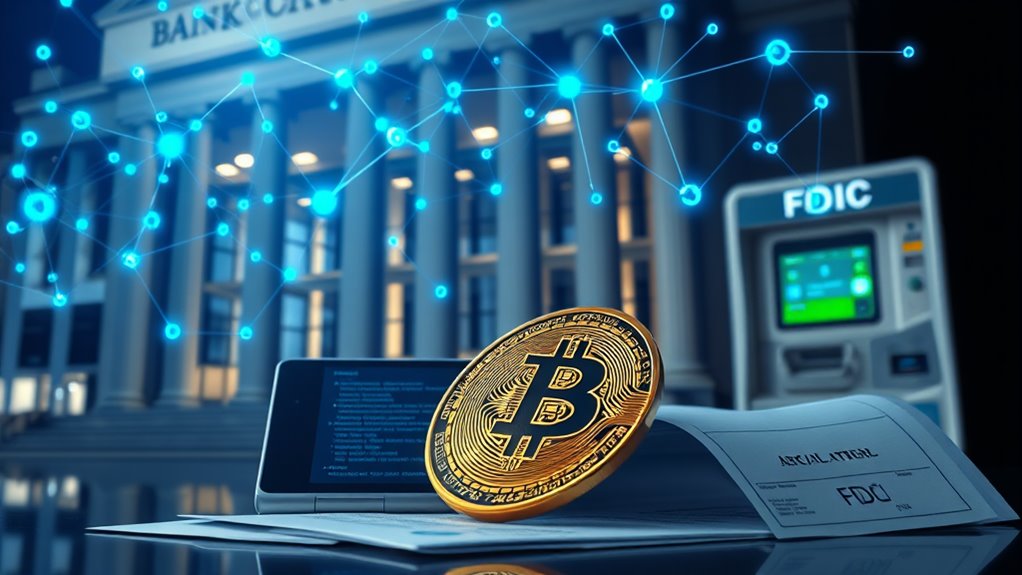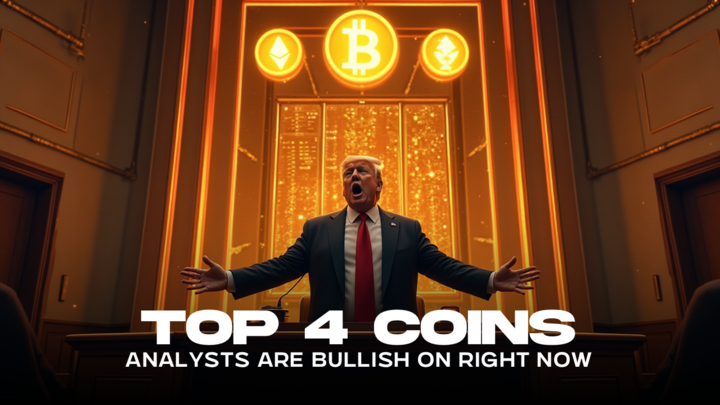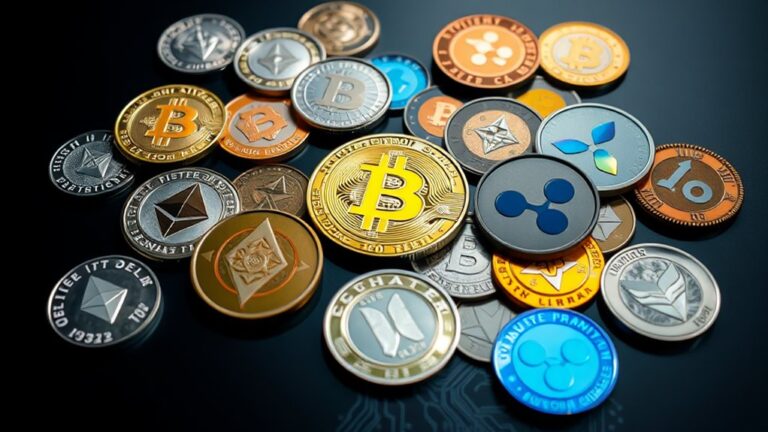Banks Poised to Leverage Public Blockchain as FDIC Rewrites Crypto Rulebook
Note: This post may contain affiliate links, and we may earn a commission (with No additional cost for you) if you purchase via our link. See our disclosure for more info. The gold and crypto world is constantly changing. This is not financial, investment, legal, or professional advice. So, please verify the information on the gold and cryptocurrency provider’s websites.

The banking world just got a major shake-up. The FDIC has dramatically reversed course on crypto policy, now allowing banks to interact with public permissionless blockchains. They've scrapped the restrictive FIL-16-2022 guidance that made crypto activities a bureaucratic nightmare. About time, right?
This isn't just another memo. It's a fundamental shift that lets traditional banks plunge into activities previously deemed too risky—issuing tokens, making markets for crypto trading, and participating in blockchain settlement systems. The stodgy institutions that once shunned Bitcoin can now facilitate crypto-related transactions and even offer crypto lending products. Talk about an identity crisis.
The change won't happen overnight. Banks are eyeing API-driven solutions and hybrid implementations to bridge their archaic systems with blockchain technology. Some are already working on integrating custody services into existing banking apps. It's like watching your grandparents suddenly decide to get Instagram accounts.
Banks' blockchain adoption resembles grandparents reluctantly signing up for social media—clumsy, inevitable, and oddly fascinating to witness.
Risk management remains front and center. The FDIC insists all activities must align with existing prudential standards, with special attention to liquidity monitoring given crypto's wild price swings. Stablecoins are getting extra scrutiny too. The agency is actively examining potential updates to pass-through deposit insurance regulations for stablecoins. Nobody wants another banking collapse triggered by digital asset mayhem.
Honestly, the U.S. is playing catch-up here. Other countries gave their banks the blockchain green light years ago. American regulators finally realized that maintaining financial leadership means embracing innovation, not suffocating it with red tape. The new guidance, FIL-7-2025, represents a return to continuous supervision through regular bank examinations rather than burdensome preapproval requirements.
For consumers, this means potentially buying Bitcoin through the same app you use to pay your mortgage. For banks, it translates to new revenue streams and operational efficiencies—shrinking transaction times from days to minutes.
The industry impact could be substantial: increased revenue diversification, reduced costs, and automated custody processes. While banks will likely start with safer applications like settlements, the door is now wide open for broader integration. Banking and blockchain are no longer mortal enemies. They're awkward dance partners figuring out their first steps.












